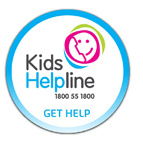Internet Safety: Parents
CyberbullyingBullying online
Cyberbullying is the use of technology to bully a person or group. Bullying is repeated behaviour by an individual or group with the intent to harm another person or group.
In the case of cyberbullying the intended harm may be social, psychological and even, in extreme cases, physical. It can cause shame, guilt, fear, withdrawal, loneliness and depression.
Because children and young people are often online it can be hard for them to escape cyberbullying. Nasty messages, videos and gossip can spread fast online and are hard to delete. Sometimes the attackers can be anonymous and hard to stop. These factors make it harder for adults to see and harder to manage.
What does cyberbullying look like?
Children can cyberbully each other in a number of ways, including:
- abusive texts and emails
- hurtful messages, images or videos
- imitating others online
- excluding others online
- nasty online gossip and chat
Cyberbullying can happen to anyone, however often the children involved in cyberbullying are also involved in other kinds of bullying. One in 10 young people say they have experienced cyberbullying.*
Is my child being cyberbullied?
Children often don’t tell adults about cyberbullying. They fear we will disconnect them from supportive friends and family and may overreact and make the situation worse. It’s important to look out for signs that your child may be the target of cyberbullying or struggling for other reasons. Look for:
- changes in personality, e.g. more withdrawn, anxious, sad or angry
- appearing more lonely or distressed
- unexpected changes in friendship groups
- decline in school work
- change in sleep patterns
- avoidance of school or clubs
- a decline in physical health
If your child shows any of these signs, or other worrying and out of character behaviour, tell them you are worried and want to help. If they won’t open up to you recruit others to talk to them (aunties, uncles, grandparents, coaches, teachers). Keep a close eye on their online and offline behaviour. It is important to keep your child connected to supportive friends and family both online and offline.
Reassure your child that you are there to support them and help them, even if they have participated in part of the bullying. Keep them connected to supportive friends on and offline.
Is my child cyberbullying others?
Where do I go for help?
In a life-threatening and time-critical situation call Triple Zero (000).
School support
All schools should have anti-bullying policies in place and should be able to provide support to your child, whether the bullying is from a child at their school or not. Check your school’s policy for managing cyberbullying and what support they can provide your child. Ensure that you and your child are comfortable with how the issue will be managed.
Counselling
If your child seems distressed or withdrawn, consider seeking professional support for them.





